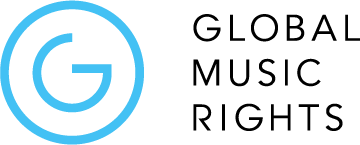ASCAP license for business music use
Play music legally in your business with an ASCAP license through our easy-to-use music licensing service. Having the right license ensures you're fully compliant with public performance laws. We make it simple to work with music licensing companies like ASCAP, so you can focus on running your business while we handle the legal side.
What the law says about playing music in your business
Whether you operate a coffee shop, retail store, spa, or any other public venue, you need the proper music license to play songs legally. This is known as a public performance right, and it’s required under U.S. copyright law.
An ASCAP music license gives your business the legal right to play millions of songs from ASCAP’s catalog. Here’s a breakdown of what an ASCAP license typically costs. Businesses that typically need this type of license include restaurants, hotels, offices, fitness centers, schools, residential communities, bars, and nightclubs. Failing to secure the right music license can result in costly penalties, so working with music licensing companies like ASCAP is a smart and simple way to stay protected.
Limits to Licenses
An ASCAP license covers many common uses of music in business settings, but there are important limitations to be aware of.
Holding an ASCAP music license does not authorize your business to host a live band, hire a DJ, operate karaoke nights, or use other music sources such as CDs, MP3 players, radio, or television. These uses often require additional permissions beyond the scope of standard public performance licenses.
Likewise, if your venue charges an entry fee, cover charge, or any similar admission cost, that use may not be covered under a basic music licensing agreement from ASCAP or similar organizations. Businesses engaging in these activities should seek additional licensing or legal guidance to avoid copyright infringement liability.
For further help, please reach out to our support team. If needed, they can refer you to a music licensing expert or legal professional who understands the specific requirements of your business.

Outside the United States
SoundMachine is available in over 100 countries worldwide, helping businesses deliver properly licensed background music across a wide range of international markets. Our service includes bundled licensing coverage for the United States, Canada, and Japan through direct agreements with major performing rights organizations (PROs).
In other countries, while SoundMachine provides licensed music content, you may need to obtain additional public performance licenses from your local PRO to ensure full compliance with regional copyright laws. These organizations manage music performance rights on behalf of artists and publishers within their specific territories.
We’re here to help. If you’re unsure what local permissions might be needed based on your country, business type, or how you use music in your space, our support team is happy to assist. Our goal is to make music licensing simple, legal, and easy to manage, wherever your business operates.
Frequently Asked Questions
What is ASCAP?
The American Society of Composers, Authors and Publishers (ASCAP) is a nonprofit performing rights organization (PRO) in the United States. It represents over one million songwriters, composers, and music publishers, licensing their music for public performance in venues such as businesses, radio stations, TV networks, and digital streaming platforms. ASCAP collects license fees from these music users and distributes royalties to the artists and rights holders whose work is performed. If you play music publicly in your business, having an ASCAP license helps ensure you're legally covered for songs in its extensive catalog.
Do I need a license to play music in my business?
Yes. If you play music in a public or commercial space, even from your personal playlist or device, you need a public performance license. This applies to stores, restaurants, gyms, salons, offices, and many other types of businesses.
Can I use Spotify, YouTube, or Apple Music at my store?
No. Personal music streaming platforms are not licensed for business use. Playing music from these services in a commercial setting can lead to copyright violations and financial penalties. You need a properly licensed provider or an ASCAP license that covers public performance rights.
Is an ASCAP music license enough on its own?
An ASCAP music license covers a large catalog of music for public performance in the United States. However, businesses often need coverage from multiple performing rights organizations, such as BMI, SESAC, and GMR.
What happens if I get caught using unlicensed music?
You may receive a cease-and-desist notice or face legal action. In the U.S., fines for copyright infringement can range from $750 to $150,000 per song, depending on the nature of the violation. These penalties are actively enforced by music licensing companies like ASCAP, and they can add up quickly.
How can I make sure I’m compliant?
Working with an approved licensing provider or directly obtaining the proper ASCAP license is the most reliable way to stay compliant. If you're unsure with what you need, reach out to our support team, and we can help you find the right solution or point you to a licensing consultant.
Play it fair. Try it for free.
SoundMachine: Simple, legal music for your business
Managing music licenses individually can be time-consuming and confusing. Starting from $26.95 per month, SoundMachine takes care of everything for you, covering ASCAP, BMI, GMR, and SESAC. You can import your playlists directly from Spotify and start playing music legally in your business right away. Try SoundMachine free for one month by clicking here.






